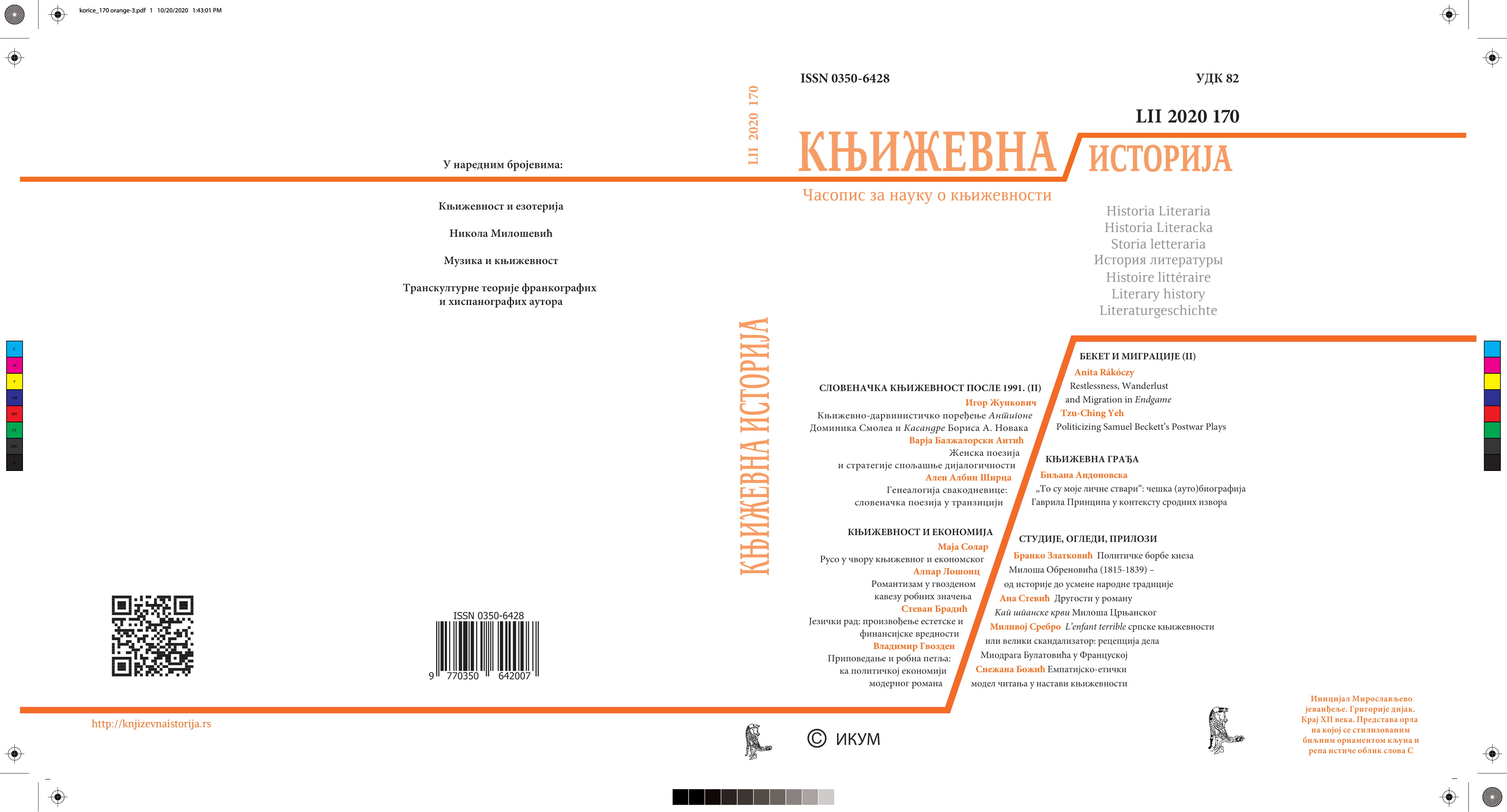Женска поезија и стратегије спољашње дијалогичности
Women’s Poetry and Strategies of External Dialogism
Author(s): Varja Balžalorsky AntićSubject(s): Serbian Literature, Slovenian Literature
Published by: Институт за књижевност и уметност
Keywords: contemporary Slovenian poetry;women’s writing;external dialogism;persona;dramatic monologue;women’s emancipatory discursive practices;
Summary/Abstract: This article deals with Slovenian poetry written by women in the last two decades and focuses in particular on the use of so-called external dialogism. In the introductory section, I present a brief outline of the historical position of women poets in the Slovenian literary system along with structural changes that have occurred since 2000. Although these changes have had a positive influence on both poetic production by women and on its overall reception, statistical data reveals that the Slovenian literary field remains largely phallocentric. In the second section, we analyse recent women’s poetry published in Slovenia, finding in it many of the female attitudes toward the patriarchal symbolic order identified by Julia Kristeva: namely, accommodation and appropriation, and subversion through an exploration of its constitutive mechanisms. At the same time, we argue that all phases in the development of women’s writing defined in Elaine Showalter’s gynocritic are present in contemporary Slovenian women’s poetry: protest, imitation and accommodation, self-discovery and self-exploration. Although Saša Vegri was one of the first to begin this emancipatory process in late 1960, radical critiques of the symbolic order appearing in women’s poetry were rare and sporadic, and the majority of women poets in subsequent generations drew upon the same patrilinear tradition at the beginning of their poetic careers. In the generation of women poets born around 1970, the emancipatory approach was followed most systematically in Taja Kramberger’s poetry, and in the next decade in the work of Alenka Jovanovski and Ana Makuc. Female authors of the 1960 generation, Barbara Korun and Maja Vidmar, also increasingly stepped out of the accommodational mechanisms of patriarchal structures and began to investigate the neuralgic points of the symbolic in a more daring manner. Authors confronting patriarchally-formed mental, socio-cultural, and enunciative patterns generally use two strategies in reconstructing their own discursivity: the concept of the fictive persona, and the dramatic monologue. We provide a brief historical outline of these poetic techniques, incorporating both in so-called external dialogism, a category drawn from Bakhtin’s typology of dialogic relations in prose fiction and transposed onto lyric discourse. In the rest of the paper, we analyse poetry collections by Taja Kramberger, Katja Gorečan, Barbara Pogačnik, Barbara Korun, Ana Makuc, and Maja Vidmar. The theoretic framework for the analysis is a reconceptualized view of the lyrical subject, using concepts such as focalization in the analysis of the lyric. The article comes to the conclusion that the persona poem and the dramatic monologue are principle strategies used to explore the intimate and social habitus that had so long been maintained in silence, the very gesture of acquiring voice undertaken by hitherto “fragile” subjects – women, animals and even plants – endowed with the symbolic value of the subversive and transformative impulse.
Journal: Књижевна историја
- Issue Year: 52/2020
- Issue No: 170
- Page Range: 31-51
- Page Count: 21
- Language: Serbian

